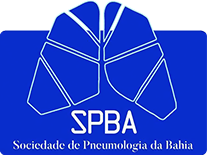Home Oxygen Therapy for Adults with Chronic Lung Disease
An Official American Thoracic Society Clinical Practice Guideline
Susan S. Jacobs, Jerry A. Krishnan, David J. Lederer, Marya Ghazipura, Tanzib Hossain, Ai-Yui M. Tan, Brian Carlin, M. Bradley Drummond, Magnus Ekstro¨m, Chris Garvey, Bridget A. Graney, Beverly Jackson, Thomas Kallstrom, Shandra L. Knight, Kathleen Lindell, Valentin Prieto-Centurion, Elisabetta A. Renzoni, Christopher J. Ryerson, Ann Schneidman, Jeffrey Swigris, Dona Upson, and Anne E. Holland; on behalf of the American Thoracic Society Assembly on Nursing
THIS OFFICIAL CLINICAL PRACTICE GUIDELINE OF THE AMERICAN THORACIC SOCIETY WAS APPROVED SEPTEMBER 2020
Background: Evidence-based guidelines are needed for effective delivery of home oxygen therapy to appropriate patients with chronic obstructive pulmonary disease (COPD) and interstitial lung disease (ILD).
Methods: The multidisciplinary panel created six research questions using a modified Delphi approach. A systematic review of the literature was completed, and the Grading of Recommendations Assessment, Development and Evaluation approach was used to formulate clinical recommendations.
Recommendations: The panel found varying quality and availability of evidence and made the following judgments: 1) strong recommendations for long-term oxygen use in patients with COPD (moderate-quality evidence) or ILD (low-quality evidence) with severe chronic resting hypoxemia, 2) a conditional recommendation against long-term oxygen use in patients with COPD with moderate chronic resting hypoxemia, 3) conditional recommendations for ambulatory oxygen use in patients with COPD (low-quality evidence) or ILD (low-quality evidence) with severe exertional hypoxemia, 4) a conditional recommendation for ambulatory liquidoxygen use in patients who are mobile outside the home and require .3 L/min of continuous-flow oxygen during exertion (very-lowquality evidence), and 5) a recommendation that patients and their caregivers receive education on oxygen equipment and safety (bestpractice statement).
Conclusions: These guidelines provide the basis for evidence-based use of home oxygen therapy in adults with COPD or ILD but also highlight the need for additional research to guide clinical practice.
Keywords: mobility; hypoxemia; quality of life; chronic obstructive pulmonary disease; interstitial lung disease
Para acessar a integra do artigo, click aqui
Surviving Sepsis Campaign: International Guidelines for Management of Sepsis and Septic Shock 2021
Evans1, Andrew Rhodes2, Waleed Alhazzani3, Massimo Antonelli4, Craig M. Coopersmith5, Craig French6, Flávia R. Machado7, Lauralyn Mcintyre8, Marlies Ostermann9, Hallie C. Prescott10, Christa Schorr11, Steven Simpson12, W. Joost, Wiersinga13, Fayez Alshamsi14, Derek C. Angus15, Yaseen Arabi16, Luciano Azevedo17, Richard Beale18, Gregory Beilman19, Emilie Belley-Cote20, Lisa Burry21, Maurizio Cecconi22, John Centofanti23, Angel Coz Yataco24, Jan De Waele25, R. Phillip Dellinger26
INTRODUCTION
Sepsis is life-threatening organ dysfunction caused by a dysregulated host response to infection (1). Sepsis and septic shock are major healthcare problems, impacting millions of people around the world each year and killing between one in three and one in six of those it affects (2–4). Early identification and appropriate management in the initial hours after the development of sepsis improve outcomes. The recommendations in this document are intended to provide guidance for the clinician caring for adult patients with sepsis or septic shock in the hospital setting. Recommendations from these guidelines cannot replace the clinician’s decision-making capability when presented with a unique patient’s clinical variables. These guidelines are intended to reflect best practice (Table 1).
(References 5–24 are referred to in the Methodology section which can be accessed at Supplemental Digital Content: Methodology.)
Para acessar a integra do artigo, click aqui


